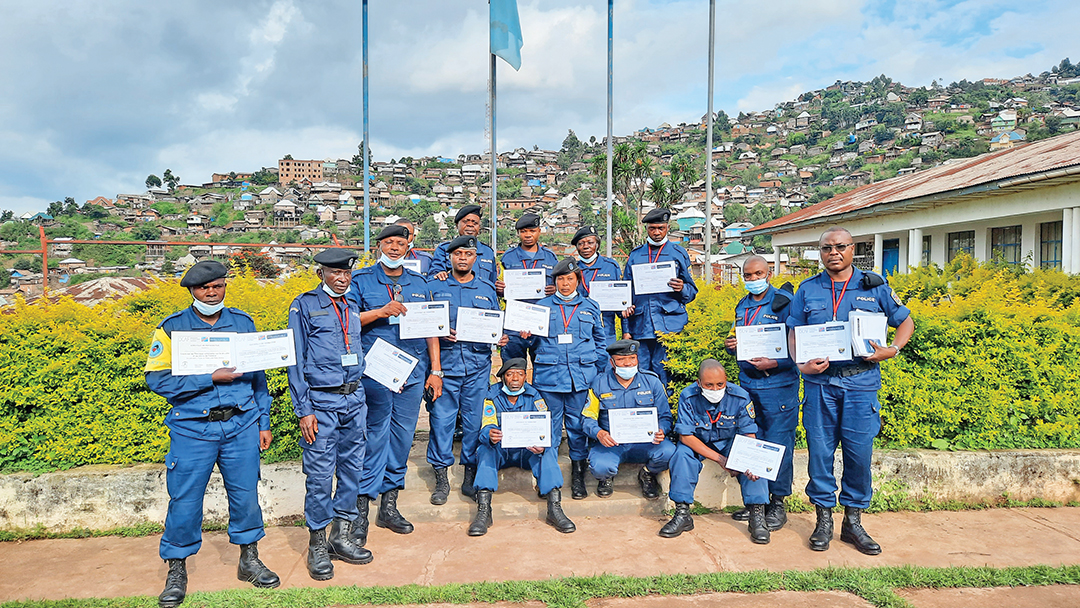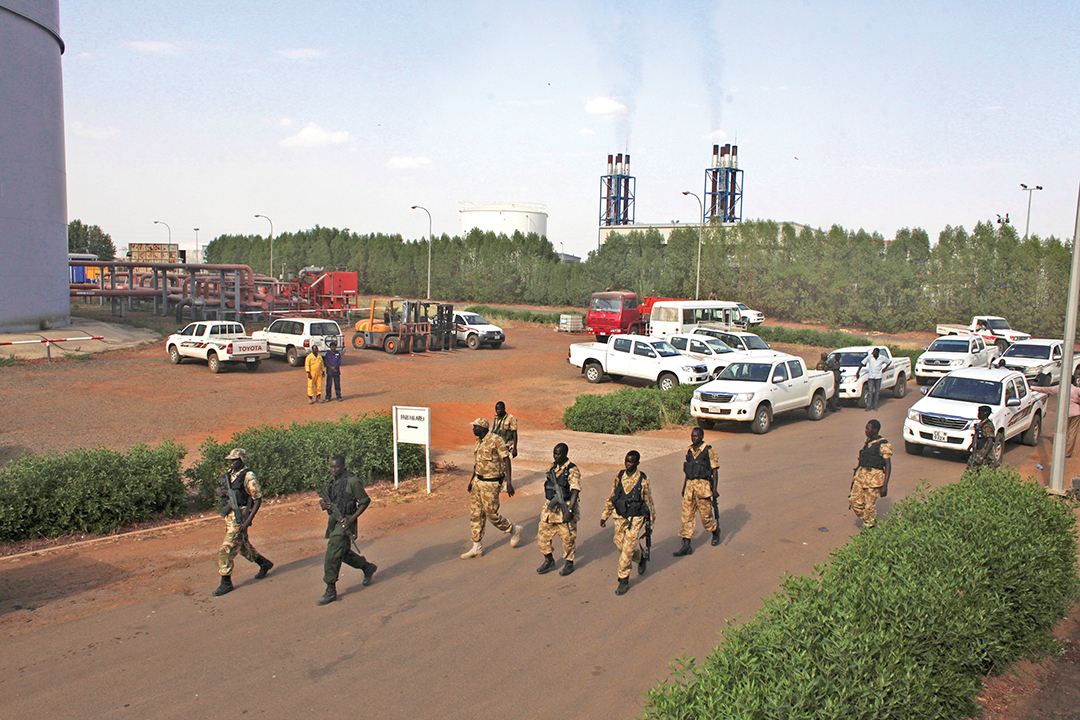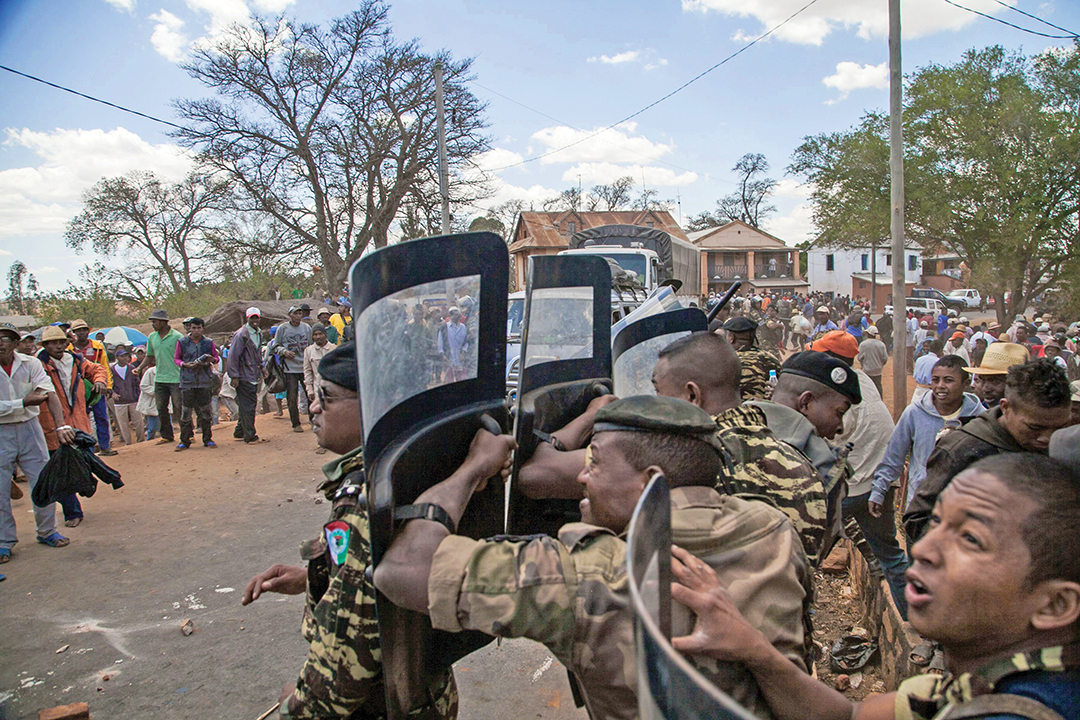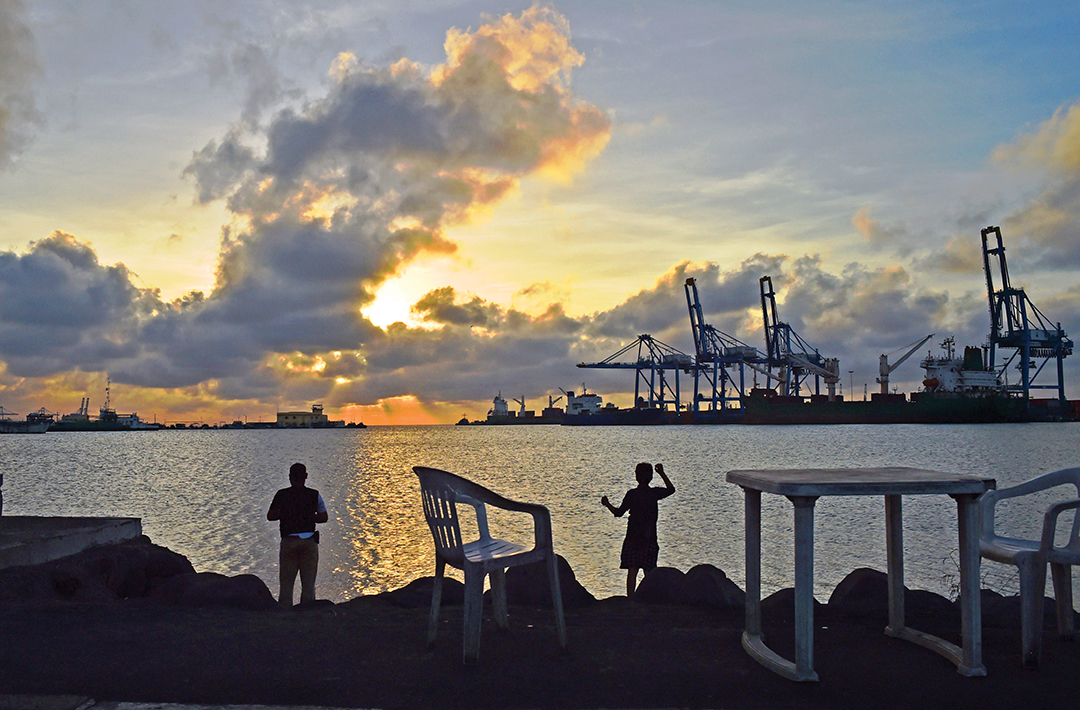Security Guided by Principles
The Voluntary Principles Initiative Works With the Extractive Industry to Make Sure Human Rights Come First
ADF STAFF
Conflict among oil, gas and mining companies and the people who live nearby is nothing new.
In the Gulf of Guinea, artisanal fishermen follow their catch close to oil platforms, putting them at risk of injury. In West and Southern Africa, small-scale miners compete for deposits with giant multinational companies. Disputes sometimes end in bloodshed. And throughout the world, citizens voice anger that large corporations encroach on their land, pollute it and profit while they receive little in return.
To protect their operations, the extractive industry often turns to private security companies (PSCs). These companies vary widely in their training, professionalism and propensity to use force against civilians. Although they’re paid to keep the peace, they can sometimes shatter it.
Africa has seen more than its share of violent clashes between PSCs and citizens. A study by the University of Denver analyzed 100 incidents of conflict between PSCs and the population. It found that 39 of these events occurred in Africa, the highest of any continent.

The Voluntary Principles Initiative (VPI) was designed to address this. Created in 2000 by the governments of the United States and the United Kingdom, the VPI is a member-based multistakeholder effort created to ensure that companies hire security professionals who respect human rights. The members include 10 countries; more than 30 of the largest oil, gas and mining companies in the world; and 14 nongovernmental organizations (NGOs).
Members that sign the VPI agree to vet their security personnel, train them and work under strict guidelines for professionalism to avoid abuses.
“For our members, the kind of incidents that were much more common in the 1990s have all but disappeared,” Mora Johnson, head of the Voluntary Principles secretariat, told ADF. “Our members operate at a very high level of proficiency and human rights professionalism. So we see fewer incidents.”
Risk Assessment
When a company signs on to the VPI, it must conduct a risk assessment. This requires looking at all the areas where civilians might come into conflict with company personnel. The assessment must look at risks to the local population, which could include environmental damage, loss of resources, road traffic and violence. The company also must look at the risk to its own personnel, which could include protests, theft or property damage.
The VPI has found that this sort of advanced planning can help companies by forcing them to think about how their presence will affect the community.

“It’s really critical to understand the context of the environment you’re working in,” Fidelix Datson, head of asset protection at Tullow Oil, a company that operates in Ghana, said during a webinar. “And that understanding goes back through to the historical understanding, through to understanding the community, the cultures and subcultures.”
Once the assessment is complete, the company puts in place a plan to mitigate those risks. Risk mitigation includes strong human rights policies and procedures such as rules of engagement, screening and training for private security personnel, and creating a reporting and investigation process for abuse allegations.
It also asks that the company go out into the community to listen to people’s concerns.
“It’s humanizing the community in order to better understand where they’re coming from,” Datson said. “When you have these conversations with them, you realize you’re trying to find the same solution but you’re coming from slightly different directions.”
Plan for Interactions With Public Security
As part of contracts, extractive companies often work with a host country’s national military or police force. The VPI requires that companies have a process to ensure that these public security forces adhere to strict human rights guidelines and use force only as a last resort. The initiative asks companies to assess the knowledge and aptitude of these forces and work with host governments to make improvements where necessary.
The VPI offers model clauses for agreements between governments and companies that prioritize human rights. It also encourages the establishment of a clear chain of command.

Doug Brooks, operations director for the Fund for Peace, an NGO that has helped countries implement the principles, said during a webinar it is incumbent on companies to have a clear view of what role public security will play in protecting their operations. This, he said, requires asking some fundamental questions: “What is the training of public security? What is their human rights background? What are the rules for force that they follow when providing security?”
It is common for extractive companies to provide police or Soldiers with equipment, uniforms and even salaries. Because of this close relationship, he said, it is important that both sides are clear on what is expected. “Companies are kidding themselves if they claim they have no control of public security,” Brooks said.
Plan for Use of Private Security
The VPI emphasizes the hiring of PSCs that are ethical, well-trained and take a defense-first posture toward conflict. Companies are asked to hire guards from the local population when possible and vet them to ensure that there are no past abuse allegations. The initiative also requires companies to investigate all events in which force is used and all abuse allegations.
The initiative has created a training course that lays out human rights and ethics, appropriate use of force, and the roles and responsibilities of security personnel. VPI members only hire PSCs that are certified by the International Code of Conduct Association.
“From my experience, there is now a kind of a tendency to have the private security personnel professionalized,” said José Abad-Puelles, VPI policy director. “In previous years, we found out the lack of training, the lack of knowledge has been one of the triggers of conflict and violence. Now there is a deep tendency to make them more professional, and it reduces these clashes.”
Ghana Leads the Way
In 2014, Ghana became the first African country to sign on to the initiative. With a robust mining sector led by gold and newly discovered offshore oil, the extractive industry is a major part of Ghana’s economy.
Then-Minister of Lands and Natural Resources Nii Osah Mills said in 2015 that Ghana wanted to join the initiative because there was a “growing consensus globally that transparency and respect for human rights are good for business.”
Three of Ghana’s largest companies in the extractive industry — Newmont Corp., Tullow Oil and AngloGold Ashanti — also are VPI members.
Ghana has recorded some success. It developed a National Action Plan for implementing the principles. Leaders have held seven forums to discuss security issues. They also have trained more than 100 community members, local government officials and media representatives in five regions about how to report on human rights violations.
The country is building a knowledge base to improve its performance. The Kofi Annan International Peacekeeping Training Centre and the University of Mines and Technology of Ghana are partnering to produce a curriculum to train private and public security forces. The country is conducting a baseline study of human rights and security across the extractive industry.
One other notable achievement occurred in 2018 when human rights advisors gave predeployment training to 425 Ghanaian Soldiers and police taking part in Operation Vanguard, a nationwide effort to clear out illegal mining operations.
Although Ghana remains the only African country to have joined the initiative, leaders are optimistic it won’t be the last. There are working groups in the Democratic Republic of the Congo, Mozambique
and Nigeria.
“It would be wonderful to have more African governments become formal members of the Voluntary Principles Initiative,” Johnson said. “What’s more important is effective engagement to improve human rights on the ground, which can happen with or without formal membership of the national government.”


Comments are closed.